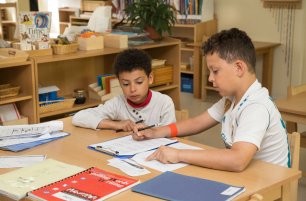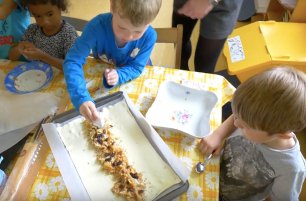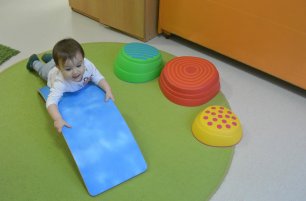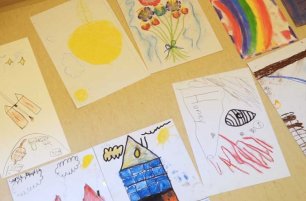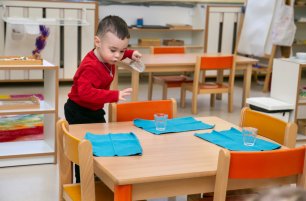Avoiding Pitfalls when Dining with a Toddler
Who doesn’t love a dinner date? There is something so universally appealing about sharing a meal with your loved one: eating delicious foods whilst engaging in conversation and enjoying each other’s company.
Of course, most of us have a different image in mind when the meal companion is a young child. Below are the three most common pitfalls you can avoid in order to have more enjoyable meals together.

-
Embrace the mess (and the cleanup). Instead of hovering over your children to make sure they won’t spill or drop food, it’s much more pleasant to relax, expect mess to happen, and make sure the child has the tools to clean up (napkin, wet sponge or cloth, sweeper and mop). Here is a promise: if the sight of a two-year-old scrubbing their chair clean won’t make you smile, I will eat this article.
-
Don’t sweat the calories. It takes a lot of energy to force, plead, or threaten some children into eating the “correct” amount of food. While, in fact, you want your child to listen to their body’s signals and eat only as much as they need. Unless a child has certain medical conditions, it is completely safe and natural for their appetite and nutritional intake to vary widely. If you really find yourself worrying whether your child is eating enough, track the average they eat in a week.
-
Take the time for meals. Food is interesting and should be enjoyed and explored. However, set the expectation that during meals, we will focus only on food and one another. Just like checking your phone is a faux pas at a dinner date, toys, screens and wandering off should not be acceptable during your child’s meal. This healthy habit is very easy to implement – simply require that a child sits down to eat and help them clean up if they leave the table.



By Michaela Tučková, IMSP Toddler Teacher
Want to learn more? Read our next article:
